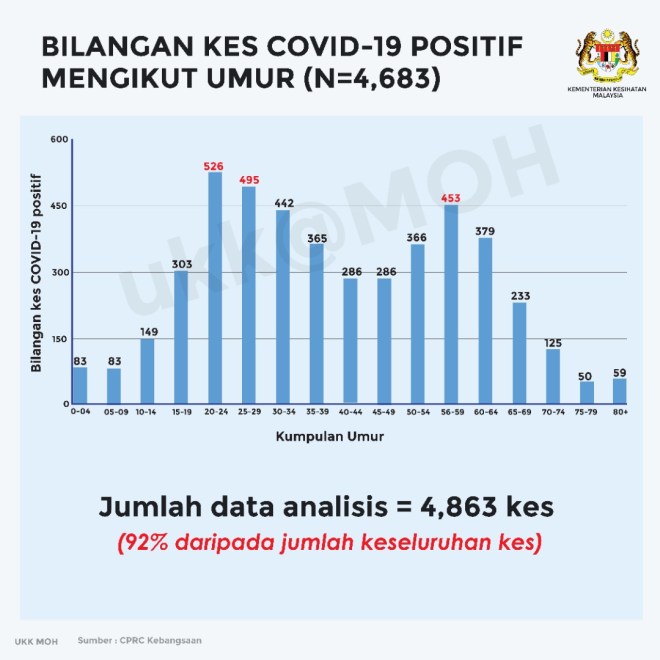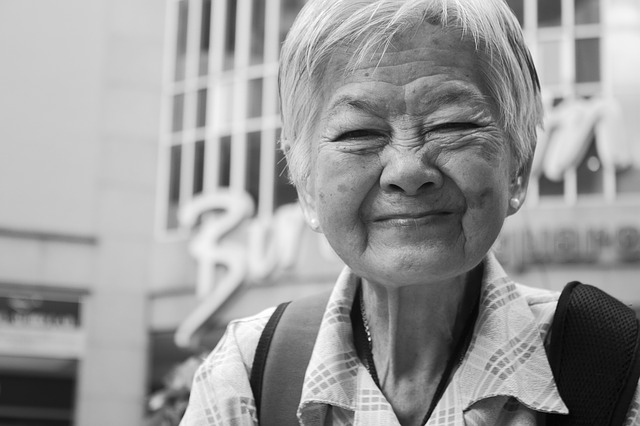KUALA LUMPUR, April 16 — Covid-19 incidence is highest in those aged 55 to 69 years in Malaysia, the Ministry of Health (MOH) revealed today.
The coronavirus incidence rate per 100,000 population is 32.5 among those aged 60 to 64, followed by 31.5 in the 55-59 age group, and 26.8 in the 65-69 age group.
“Statistics on Covid-19 fatalities that have been recorded so far shows that 62.6 per cent of deaths are aged 60 and above.
“If you look at the comorbidities factor, it was found that 80.7 per cent of fatalities had underlying chronic diseases, like diabetes, high blood pressure, kidney disease, heart disease, and other illnesses,” Health director-general Dr Noor Hisham Abdullah told a press conference.

He said MOH has worked with the Women, Family and Community Development Ministry to come up with guidelines on Covid-19 in private, public, and non-governmental organisation (NGO) residential aged care facilities.
“It is found that recovery rates and prognosis for Covid-19 infection are better if treatment starts early, so it is very important for senior citizens to get immediate treatment, even if they only have mild symptoms like fever, cough, flu, or sore throat” he said.
He also advised those with chronic diseases to use Value Added Services at MOH facilities to get medicines delivered to their homes during the enforcement of the Movement Control Order (MCO).
“We have worked with JKM (Social Welfare Department) to look into how we can address and screen the old folks’ homes, especially those very crowded old folks’ homes,” Dr Noor Hisham said.
On the breakdown of Covid-19 cases according to age group, the highest number of infections were found among those aged 20 to 24 (526 cases), those aged 25 to 29 (495 cases), and those aged 56 to 59 (453 cases). This analysis is based on 4,863 cases, or 92 per cent of overall cases.

MOH is also working with NGOs and the United Nations High Commission for Refugees (UNHCR) to test foreign workers, some of whom are reluctant to come forward. In Pasar Burong in Selayang, health authorities have screened 465 foreign workers, including 13 who have tested positive for coronavirus as of today.
“We’ll continue to enhance our services in terms of screening, and trace and track and test them, and isolate and treat them as well.”
The National Human Rights Commission of Malaysia (Suhakam) said in a statement yesterday that refugees and asylum seekers hesitated to get screened for coronavirus due to fears of arrest and an inability to afford health care fees.
“Despite the government’s assurances that there will be no arrests or detention during the Covid-19 pandemic crisis, it was reported that arrests of refugees and asylum seekers, particularly persons of concern who have yet to receive their UNHCR documentation, did indeed still occur.
“There were also fears that coming forward in this period may lead to the possibility of being arrested once the crisis is over.








